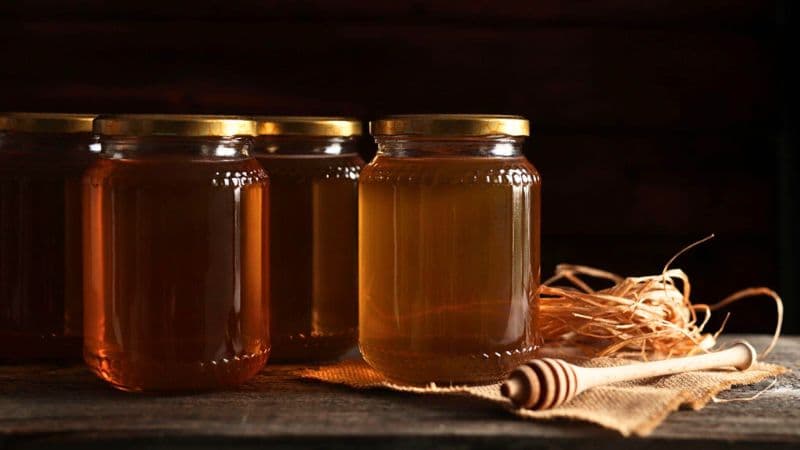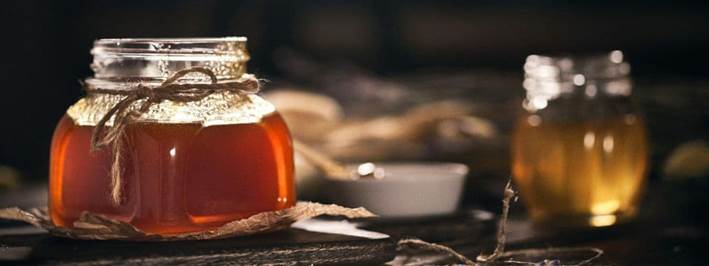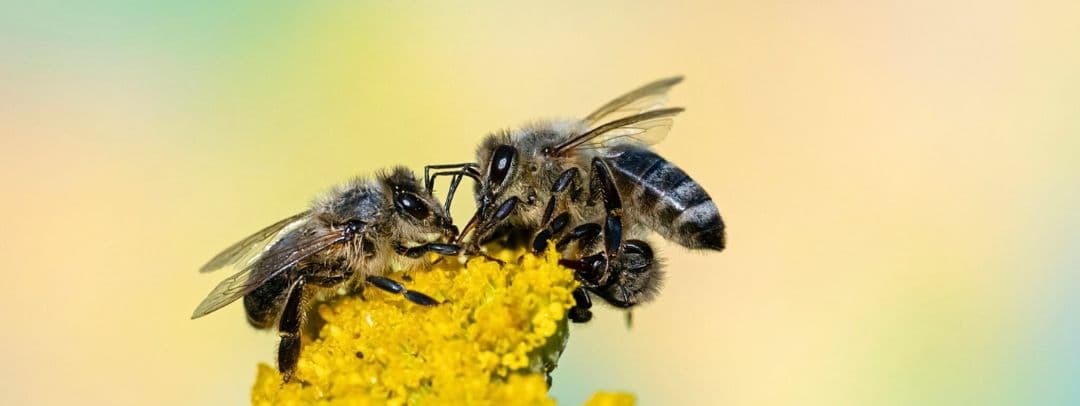Organic honey is honey obtained from the blooms of organically certified fields that comply with the protocols of organic beekeeping. Do you know what its characteristics are? Here we tell you everything you need to know about these honeys, their properties, benefits and special features.
- What is organic honey?
- Characteristics of organic honey
- How do you know if honey is organic?
- Is pure honey the same as organic honey?
- What is organic beekeeping?

What is organic honey?
Organic honey, also known as organic or Bio, is honey obtained from the blossoms of certified organic fields. To be considered an organic product, it must comply with the protocol required by organic beekeeping.
In addition, the honey obtained from these fields must have the corresponding certification that guarantees it.
This means that for honey to be considered organic, it must be made with nectar from flowers that are free of pesticides and herbicides. In addition, no antibiotics or chemicals are used on the bees.
Characteristics of organic honey
Organic honey has many characteristics in terms of the hives, the quality of the honey, etc., which differentiate it from conventional honey:
- The location of the apiaries: Organic hives are located far from urban areas, extensive cultivation areas, or any place where there may be contamination. On the contrary, they are usually located in wild or mountainous areas. Thus, organic beekeepers will be able to guarantee the purity of the honey much better.
- Composition of the hive: The hives are made in a completely natural way, i.e. they must not contain any petroleum derivatives or any other product that could be harmful to the bees.
- Feeding the bees: In order to obtain organic honey certification, it is essential that the bees feed only on the honey and pollen that they themselves produce. Thus, the bees cannot be fed with glucose or any other flavour enhancer or colouring agent, as these alter the final taste of the honey, and at the same time it loses some of its quality.

- Treatment of pests and diseases: Natural treatments, such as oxalic acids, thymol or other similar ecological products, should be used for any pest or disease, as well as during preventive treatments in the hive. Chemicals, insecticides and antibiotics should never be used, as these would be passed on to the honey and subsequently to humans.
- Extraction of organic honey: the honey extraction process is always carried out cold, at the same temperature as the hive, using the decanting technique. In order not to lose its properties, the organic honey is carefully filtered, avoiding pasteurisation of the honey. This is a very important process, as it is here that the aromas and substances that characterise organic honey are obtained.
In any case, care must be taken to respect and carefully follow all existing regulations related to the quality of honey.
Therefore, organic honey differs in many ways from conventional honey. The way the hive is cared for, the quality and purity of the honey obtained, the care required, the care of the process… are all important factors.
Qualified beekeepers are needed to take care of the honey throughout the year and to look after the hive.

How do you know if honey is organic?
According to existing regulations, organic honey must be packaged with a specific and differentiating label. In this way, anyone will be able to identify it easily just by looking at the logo.
We must bear in mind that artisan honey is not the same as organic honey. This means that a product can be artisanal, but not organic. Therefore, we must be careful not to be confused when buying. Always look for the logo certifying that it is certified organic honey.
Is pure honey the same as organic honey?
You should know the difference between pure honey and organic honey.
Pure honey is honey that has been produced without chemicals. However, pure honey does not necessarily have to be organic, because even if the honey is not processed, the bees may have been treated with antibiotics to prevent them from getting sick.
Therefore, pure honey refers to the content of the honey, but not to how it was obtained.
What is organic beekeeping?
The aim of organic beekeeping is to produce quality products without using chemical products, antibiotics or genetically modified organisms. For this reason, specific techniques and regulations are used to produce these products.
The regulations governing this production system are contained in Regulation (EEC) 2092/91 on organic production of agricultural products and indications referring thereto on agricultural products and foodstuffs.
You may also be interested in:



